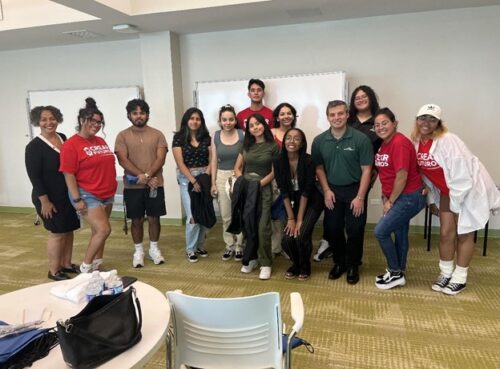On the top floor of the New Academic Building, Professor Kyle Anderson teaches classes on modern Middle Eastern history here on SUNY Old Westbury’s campus. He teaches courses focusing on Islamic civilization and has written a book about the role of British colonialism in the 1919 Egyptian revolution. This information is readily available on the SUNY Old Westbury website, but if people were just what it said on a website, then life would be too easy.
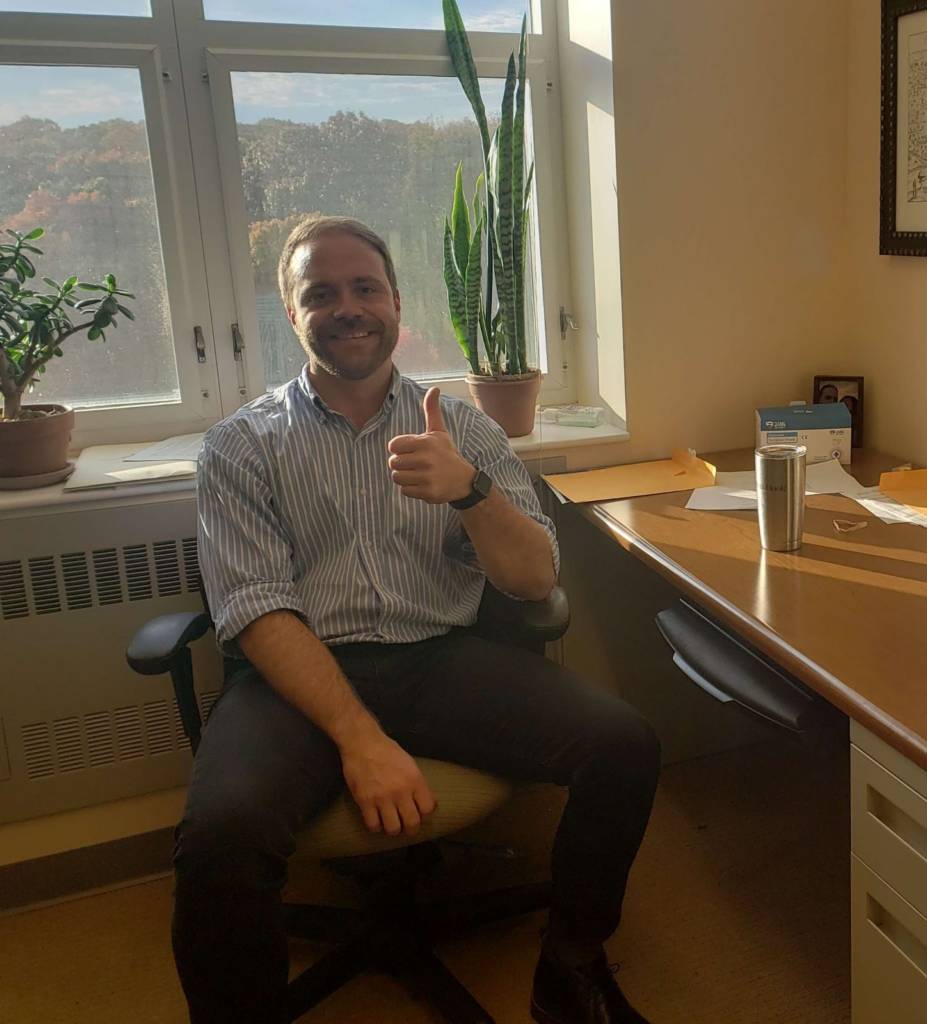
When I met with Anderson, he was in the middle of a meeting with the History and Philosophy club, which is a club centered on, as the name suggests, history and philosophy. As the faculty advisor for this club, he comes up with and arranges events for the students. At this time, they were talking about a trip to the Natural History Museum in the city.
Shortly thereafter, we went to his office to conduct the interview. A cozy little space, the walls of the professor’s office were adorned with items of interest: a Tibetan Buddhist scroll, an Ottoman-era map of the world (now considerably outdated), shelves lined with books on historical theory, and an early modern European depiction of Cairo which read, in Latin, “In Egypt, what they call Babylon,” per the professor’s translation.
The professor is 36-years old and originally from Michigan. His alma mater is the University of Michigan, and he attended graduate school at Cornell University in upstate New York.
“I trained in a department of Near Eastern studies at Cornell University. I worked with experts in Islamic studies and as a result, I even took some classes with them. I draw on that experience when I teach Islamic studies,” he said. He also teaches classes about making history, how to do research and understanding historical theory.
Anderson came to Old Westbury in 2017 and since then, has become an Assistant Professor with tenure. He has his own website (kylejanderson.com), which hosts photos, op-eds, and research among other things.
As an instructor, Anderson is prone to going on tangents about specific topics, but this is not meant as a bad thing. It comes from a clear and genuine passion for the topic and the history. His mind is an encyclopedia of names, dates, geography, nations, and historical and political theory. Easily excitable, but again, this is not a bad thing. After all, the best professors tend to be paid professional ramblers.
“There are no average days when you’re a professor,” he says, “a summer day looks different than an in-semester day.” Currently, an average week for Anderson looks like this: teaching a class in the mornings and spending his afternoons answering emails and attending meetings. “For this year, I’m the faculty senate chair… [which] really dominates my schedule.” The faculty senate is, by my estimation, kind of like a union but for the faculty of Old Westbury, and the faculty senate chair is the head of that organization.
He became inspired to pursue Middle Eastern studies after 9/11. As a 14-year-old boy, he saw his community’s response. He explained, “I remember being shocked by… the ignorance and hatred that was directed towards Muslims as a group of people.” At this time, Anderson says he worked at a hospital in Kalamazoo, Michigan as a patient sitter. As the news was playing on a TV, he heard a son tell his sick mother, “Those people over there are just full of hate.”
“It seemed like such an outrageous stereotype to me,” the professor said, “but I knew he was not the only person making those kinds of comments to loved ones.”
He also had an experience with a friend who enlisted in the Marines and served in Iraq. When his friend returned home, he claimed that they loved the Americans. “I was very skeptical of that,” the professor said. “I realized I wouldn’t have any way of knowing myself if I couldn’t communicate with the people who lived in Iraq, so I decided that I wanted to learn Arabic.”
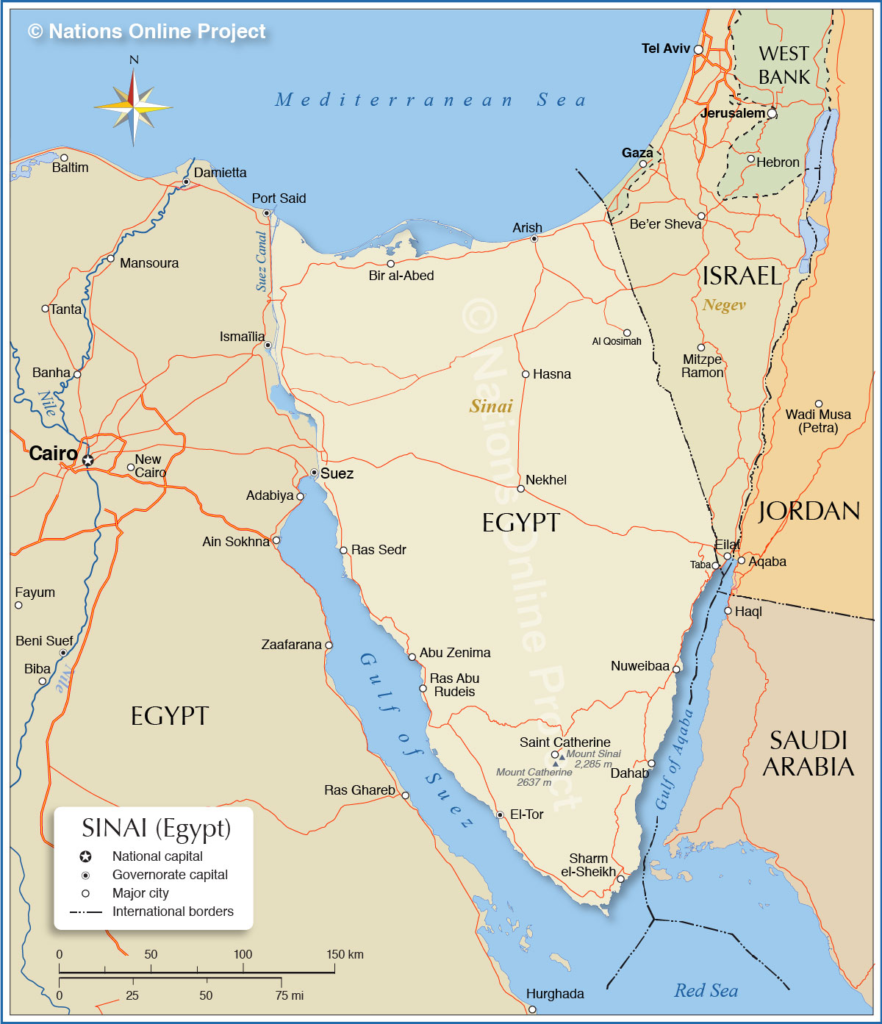
As his college career continued, Anderson would end up making a trip in the late 2000s.
“I went over to Egypt, for the first time, as a study abroad student when I was 20,” he said. “I spent 4 months in Cairo and I loved it.” He also visited other places in the Middle East, with some of his best friends. “I went to Lebanon, Syria, Jordan, Israel, and I really wanted to go back.”
By the way he told it, you’d think getting from Egypt to Jordan and back again was easy, but that was far from the truth. “We took a boat from Nuweibaa [on the coast of the Red Sea] up to Aqaba, in Jordan, and I really discovered how different the rest of the world is in terms of scheduling things,” he laughs. “The boat was supposed to take off at noon, and it did not leave until 7 p.m., because they were just waiting for it to fill up.”
“All of us were so frustrated, we had driven overnight from Cairo to Nuweibaa. It was like a seven hour drive,” he continued. “We got there at 6 a.m., so we had it in our heads that we were gonna wait six hours, which is already pretty long, but we ended up waiting for 13 hours for this boat to leave.” Most people throw hissy fits when their plane is delayed for even a half hour, but when you’re abroad, you have to live with it. “[The authorities] wouldn’t let us leave the boat, because they already stamped our passports or something like that, so we were just stuck on this boat and we just had to get over it. We just had to wait.”
On the way back, to combat the egregious wait time, the professor and his group had a better idea. “What we ended up doing was taking taxis. We took a taxi from Jordan to Israel, then we had to get out and walk across the border because they wouldn’t let us drive across the border, get into another taxi across Israel, get out, walk across the border, get into a third taxi and drive from Sinai to Cairo.” It sounded like something from a movie; in the dusty seats of a cab-riding across the Sinai desert, Anderson and his merry company made it back to Cairo. “That was a real adventure. Basically hitchhiking from Jordan to Cairo.”
He returned to the University of Michigan with a purpose. “I did an honor’s thesis on modern Egyptian history,” he said. “I loved writing that, and so I decided I really wanted to become an academic and write professionally about this kind of stuff.”
After graduating, he worked for a time at Harvard. “I took two years off and worked at Harvard business school, where… I wrote business school case studies,” he said. But it wasn’t long until Anderson enrolled in graduate school.
“I went to Cornell, and this was the same time that the Arab Spring was happening in Egypt, [2011].” For those not so historically inclined, the Arab Spring was a series of anti-government protests across the Middle East and North Africa in the early 2010s . He returned to Egypt a year later and saw events that, for most of us, were just stories on the evening news.
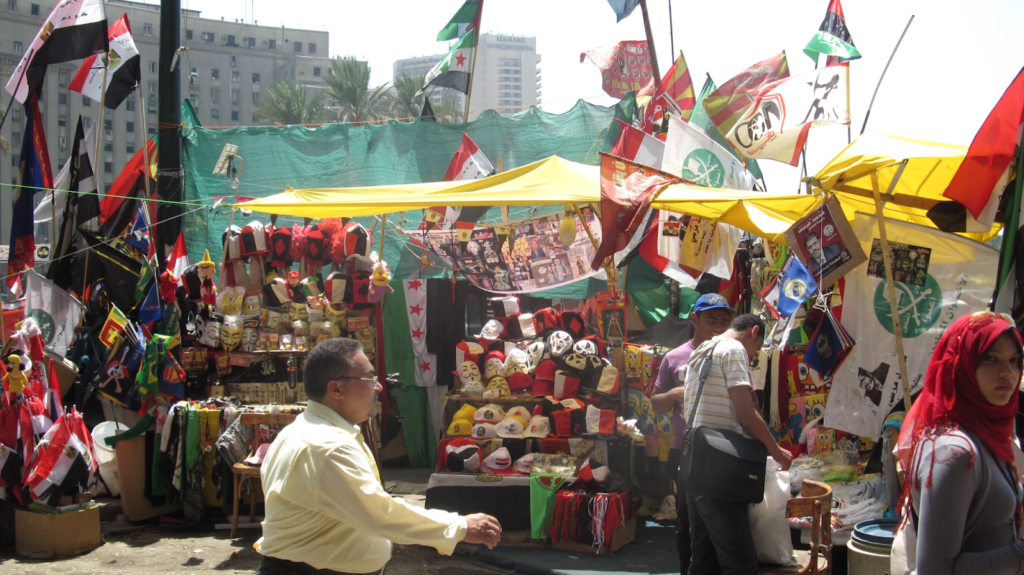
“When I went back to Egypt, summer of 2012, it was very much still in the midst of revolutionary change, and that was very exciting to witness firsthand,” he continued. “That really sealed the deal for me that I was gonna be doing this for the rest of my life.”
Like anybody, I was really interested in what he saw in that turbulent time. However, there are some things that no language, whether Arabic or English, can do justice. “There are some [stories] that I can’t share in any sort of way that I would want to,” he explained to me. He still satiated my curiosity with one that he could.
“I was there when the first presidential elections happened, after the 2011 revolution, and I watched as the Muslim Brotherhood candidate won the elections, and right before it was announced that he won there was a delay.” A delay is never good, even more so in the context of a historical election. “They didn’t announce it, and that weekend a bunch of Muslim Brotherhood supporters were bussed into Cairo from all over the country, and they started a big sit-in in protest in downtown Cairo, in Tahrir Square, where the revolution was going on.”
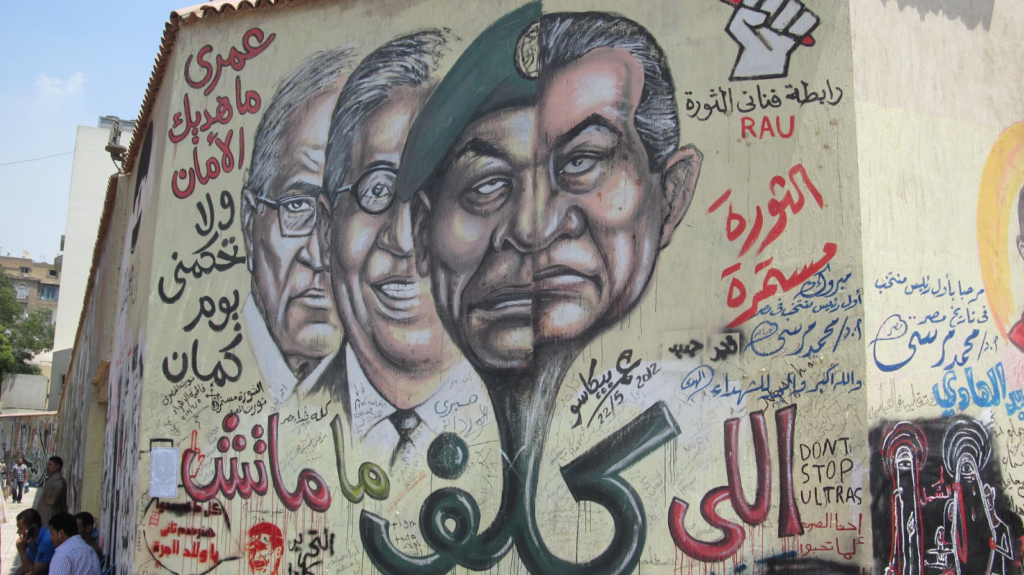
Photos from this time are on the professor’s website. They highlight the incredible protest graffiti and vibrant streetlife of Cairo. “I think just being part of that historic moment of Egypt’s first democratic presidential election was really interesting and powerful, and still those pictures are like the centerpiece of my website.” he said.
In what little time he has for himself, the professor spends it writing a second book. His first book, The Egyptian Labor Corps: Race, Space, and Place in the First World War, released in 2021, is about a group of rural Egyptian workers who were exploited by the British to run military logistics. His second book, tentatively titled, Egypt and the Global Freedom Struggle: Failed Radicals in the Long Revolution, is about Egyptian radical anti-British activists during the late 1800s and early 1900s.
“Egypt experienced two revolutions during this time, one from 1879-82, and one from 1918-1923,” the professor continued, “so I’m gonna look at the radical factions in those revolutions.” The book will also examine Egypt’s relationship to global struggle. “Usually we don’t think about Egypt as being a part of global anarchism or socialism or feminism, but there were Egyptians who were involved in all those movements.” This book will work to shine a light on a period of history that is relatively unknown. “This is a story that people don’t know, even Egyptian historians don’t know much about, and that’s why I’m interested in talking about it,” he explained.
Recently, Anderson has hosted three teach-ins on campus about the ongoing Israel-Palestine conflict. His most recent one, on November 27, concerned the media’s role in tossing kerosene on the flames of war. It was co-hosted by Professor Andrew Mattson.
Anderson has proven himself to be committed to the cause of combatting disinformation. He is trying to put together a database of solid resources for students and non-experts to look at that might give them a better understanding of the topic.
“I feel one of the big struggles that young people, and non-experts, are having right now is ‘who do I trust, what do I believe, there’s so much stuff on the internet, where do I find good information,’ so that’s what we’re going to try and rectify,” he said.
Some important advice he has for students is to have a goal and work hard. “Make sure every decision you make while in college is made with the eye towards achieving that goal, whether that is ‘I want to be a newspaper writer or a business owner,’ you should know by the time you’re halfway through college,” he said. “In the summers, try to set up internships, set up volunteer opportunities, try to network with people… who are doing the thing you want to do.”
“Without a goal in mind, people are rudderless and that’s too bad when that happens,” the professor said plainly.
I asked him if he had anything he wanted to plug in, not really expecting much beyond the History & Philosophy club, but the professor gave me an answer I didn’t expect. “I would encourage people interested in the Israel-Palestine crisis to follow the Jadaliyya YouTube channel.”
That tells you all you need to know about his character. That’s the kind of guy Anderson is. His first thought isn’t to advertise himself, but instead for a service he thinks is genuinely important. “They’ve been doing big teach-ins every Friday…it’s coming from an academic perspective,” he clarified.
And, of course, Anderson does give a shout-out to the History & Philosophy club, which meets every Tuesday during common hour in room 3115 in the New Academic Building.



